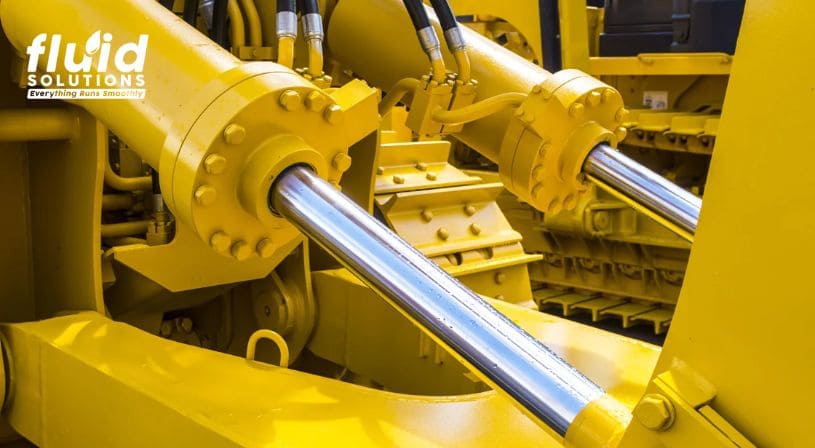
Hydraulic systems require routine maintenance to remain dependable and effective. However, improper care or neglect of maintenance can result in problems, including leaks, reduced performance, and eventually system failure in hydraulic equipment. These issues may cause expensive downtime, which could lower output and raise repair costs. Businesses may prolong the life of hydraulic components, avoid unplanned breakdowns, and maintain seamless operations by performing routine inspections and maintenance. These actions will ultimately save money and effort over time.
Hydraulic System Maintenance Mistakes
1. Changing the Oil Too Late
To keep hydraulic systems running smoothly and to extend their lifespan, consider these best practices for hydraulic oil change intervals:
- Follow Manufacturer Guidelines: Always adhere to the manufacturer’s recommendations regarding oil change frequency based on operating hours and conditions.
- Regular Monitoring: Frequently check oil quality and contamination levels through visual inspections and oil analysis.
- Assess Operating Conditions: Consider factors like load, temperature, and environment; harsher conditions may require more frequent changes.
- Incorporate Scheduled Maintenance: Include oil changes in your routine maintenance schedule to avoid neglect.
- Reevaluate After Upgrades: When upgrading systems or components, reassess oil change intervals based on the new specifications.
Failure to change hydraulic oil at the prescribed period can cause problems. Under-changing can lead to poor lubrication, overheating, and even system failure.
2. Changing the Filters at the Wrong Intervals
Regular filter changes are vital for keeping hydraulic systems in good shape. Filters play a key role in removing impurities from the oil and protecting components from damage. When filters get clogged or worn out, they can restrict oil flow, leading to hydraulic system overheating and inadequate lubrication. This not only hampers system performance but can also result in costly breakdowns and repairs. To ensure optimal flow and safeguard hydraulic components, filters should be replaced regularly, ultimately enhancing their lifespan and overall efficiency.
3. Running the System Too Hot
Clogged filters can block fluid flow, leading to overheating and decreased performance. If left unchecked, this can result in expensive repairs and prolonged downtime. By following a regular maintenance schedule for filters, businesses can avoid these problems, ensuring their hydraulic systems run at peak performance and last longer. Regular filter changes not only enhance the overall reliability and efficiency of hydraulic operations but also contribute to smoother and more effective functioning.
4. Using the Wrong Oil
Choosing the wrong oil for hydraulic systems can significantly hinder performance, leading to inefficiencies and potential damage. Factors like viscosity, compatibility, and chemical properties are crucial for proper lubrication and operation. Selecting the right viscosity helps maintain pressure and flow, while compatible fluids prevent harmful chemical reactions that can damage components.
5. Improper Filter Fitment or Installation
Ineffective filtration can arise from improper filter installation, which permits impurities to get through the filter and harm the hydraulic system. Install filters in the right orientation following the manufacturer’s instructions to guarantee optimal protection and appropriate flow direction. Keep filters clean and in good condition, and store them in a location that makes replacement simple. By doing this, the hydraulic components’ lifespan will be extended, and proper filtering efficiency will be maintained.
6. Assuming Hydraulic Components are Self-Priming and Self-Lubricating
The common misconception that hydraulic components are self-priming and self-lubricating can lead to significant operational issues. In reality, these parts need proper priming and lubrication to function effectively. Without this care, you risk early wear and decreased efficiency.
To ensure optimal performance, follow these steps: first, consult the manufacturer’s guidelines for specific priming and lubrication procedures. Begin by manually priming the system to remove any air pockets that could hinder performance. Next, lubricate all moving parts with the correct hydraulic oil for even distribution. Regularly check fluid levels and promptly replace any worn or damaged components. By taking these actions, you can enhance the reliability and longevity of your hydraulic system.
Optimize Your Hydraulic Systems with Fluid Solutions’ High-Performance Hydraulic Oils
Fluid Solutions, a leading hydraulic oil supplier in the Philippines, offers a comprehensive range of hydraulic oils designed to enhance the performance and lifespan of your equipment. We prioritize educating our customers on effective hydraulic maintenance to ensure optimal functionality and reduce downtime. Our experienced team is ready to provide personalized advice, product recommendations, and ongoing support tailored to your needs. Partnering with us guarantees that your hydraulic systems will operate reliably and efficiently.
Contact Fluid Solutions today at (02) 8370 5928 / (0917) 894 9156 or via email at inquiry@fluidsolutions.com.ph. to learn how we can assist you in maintaining your hydraulic systems.


